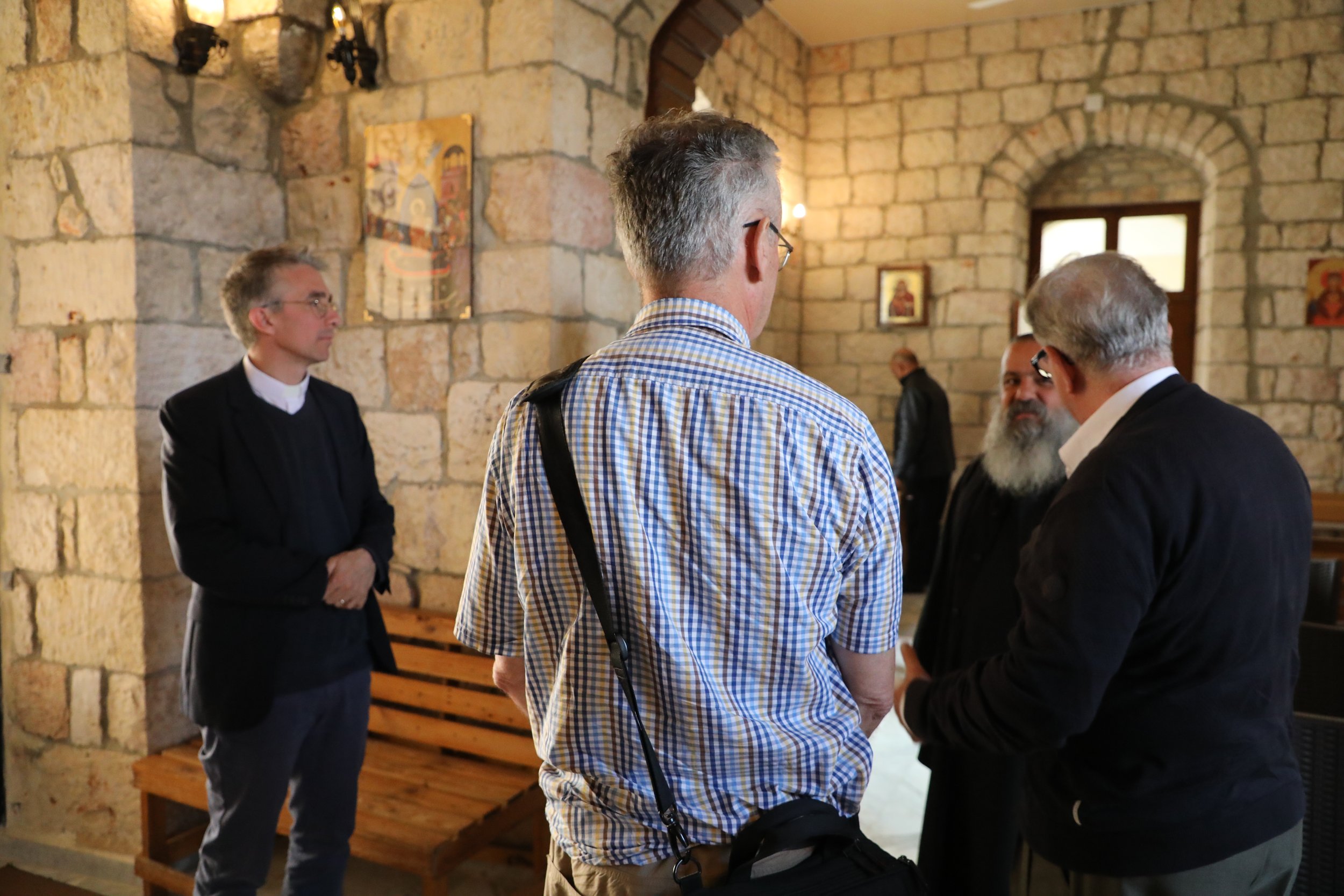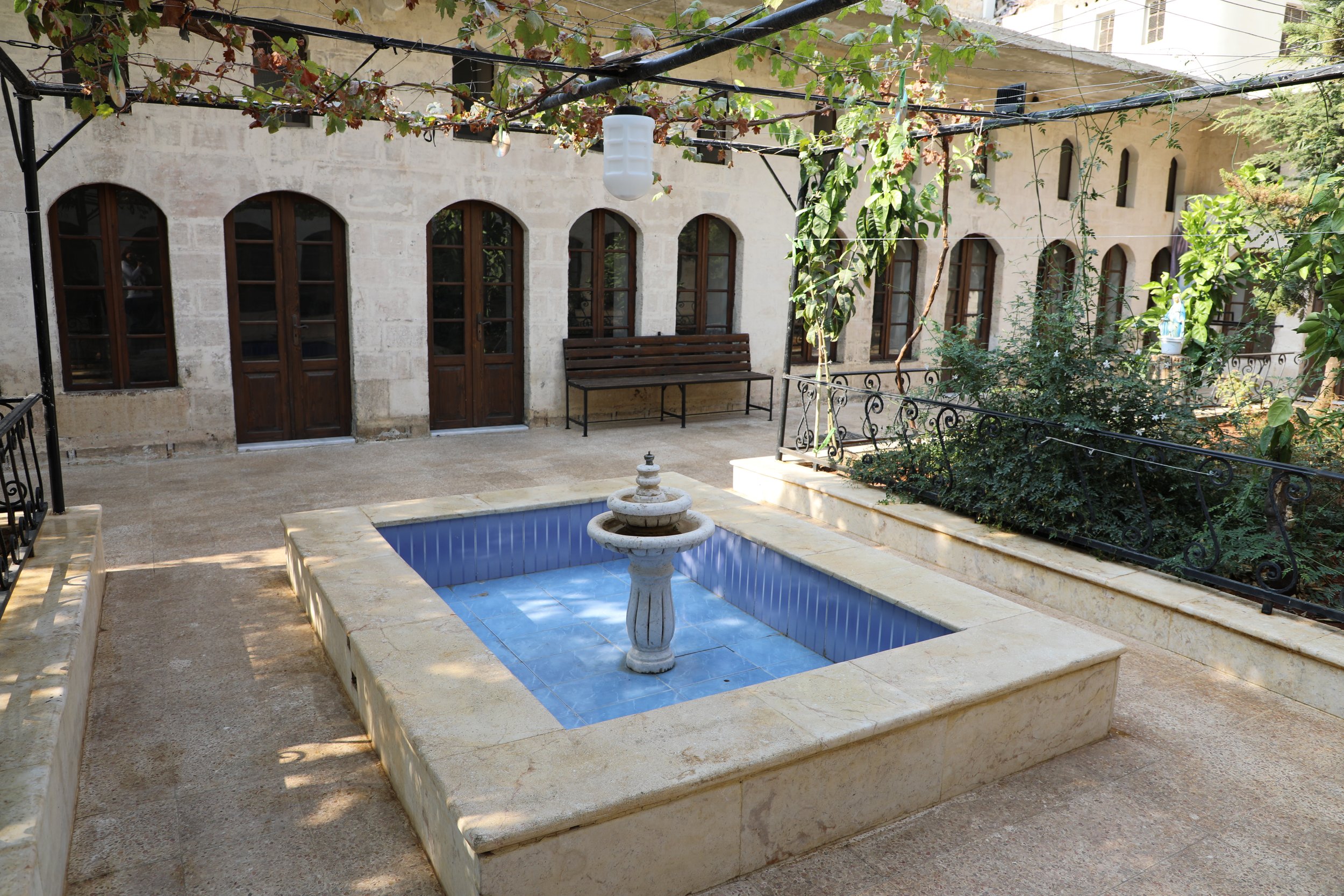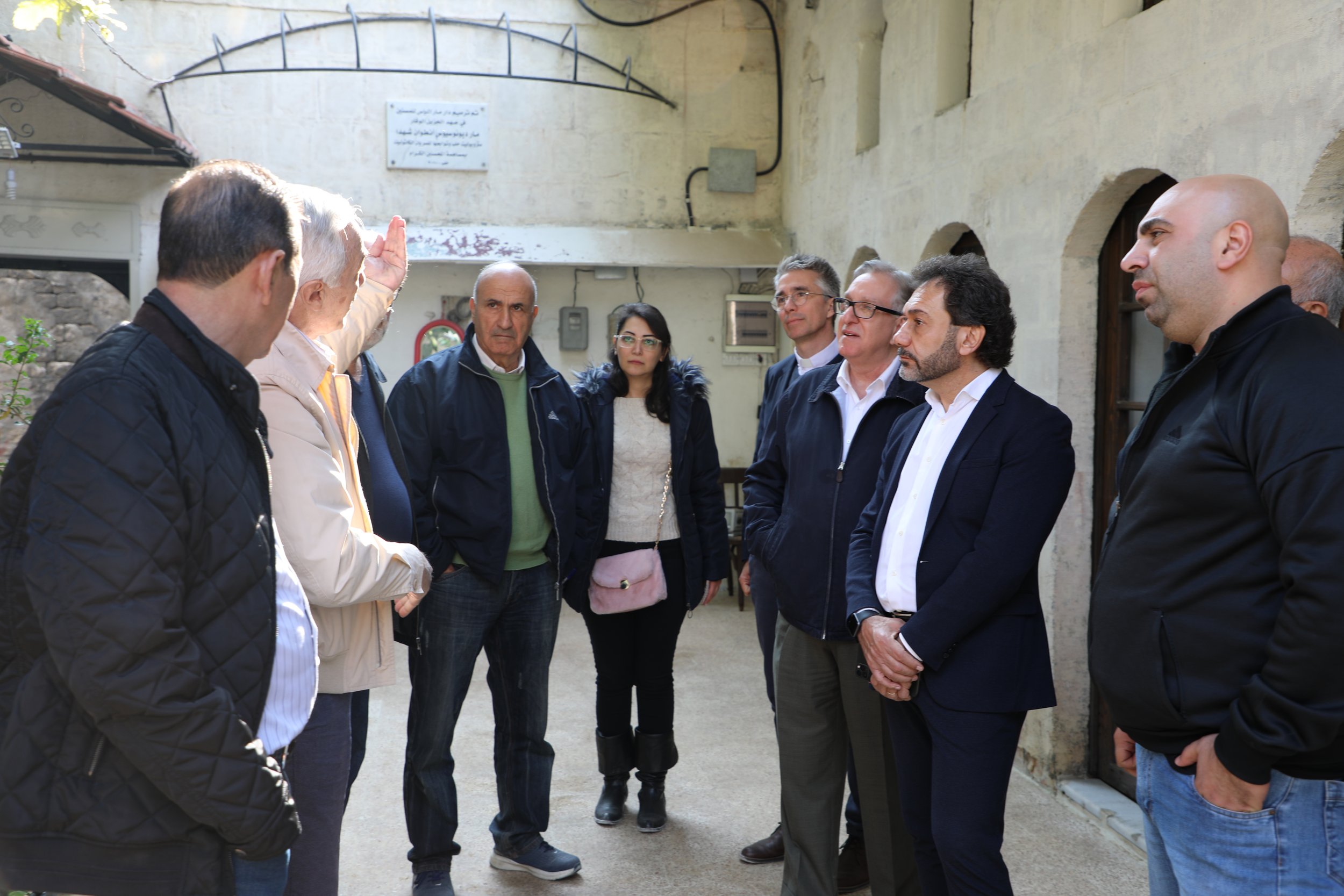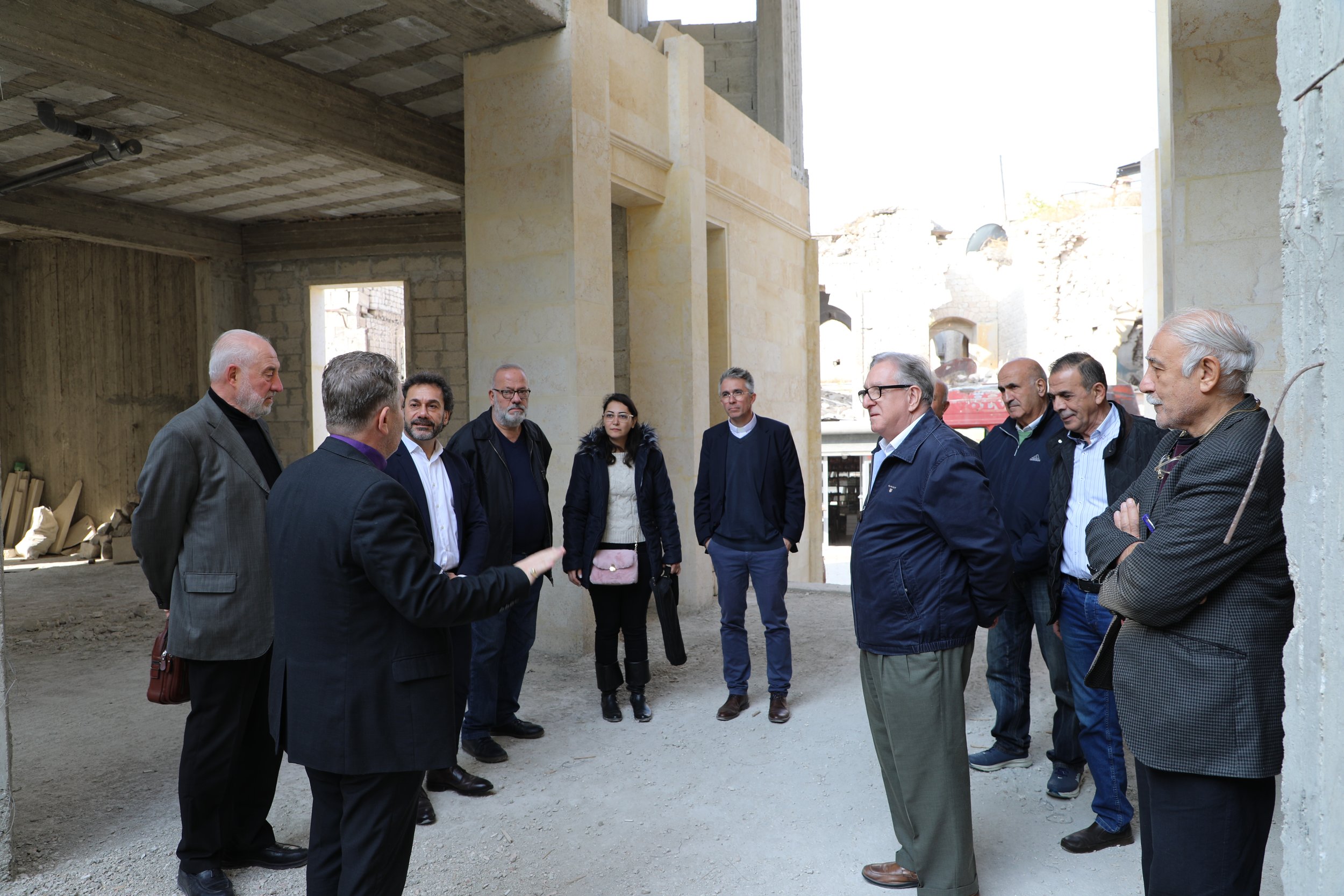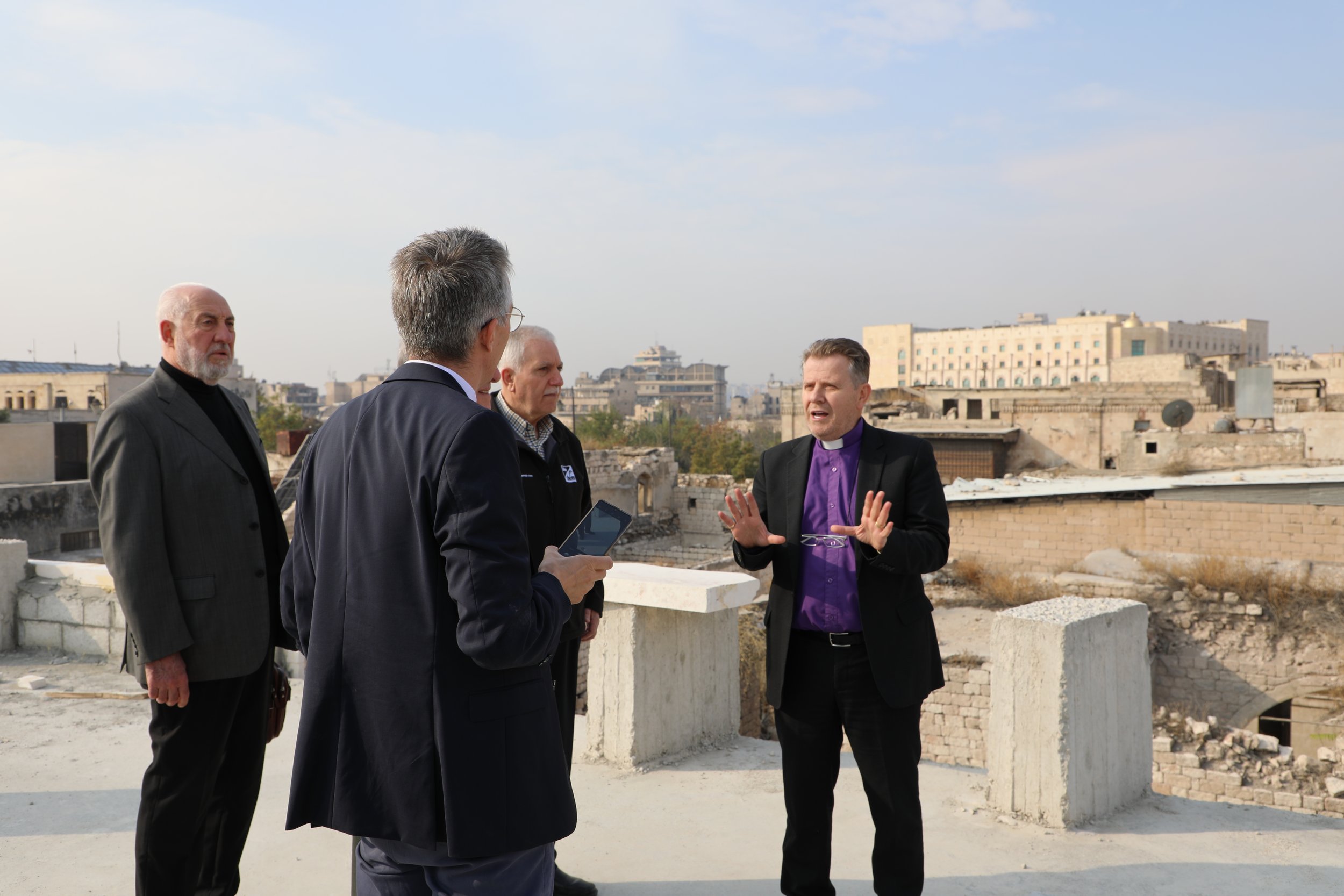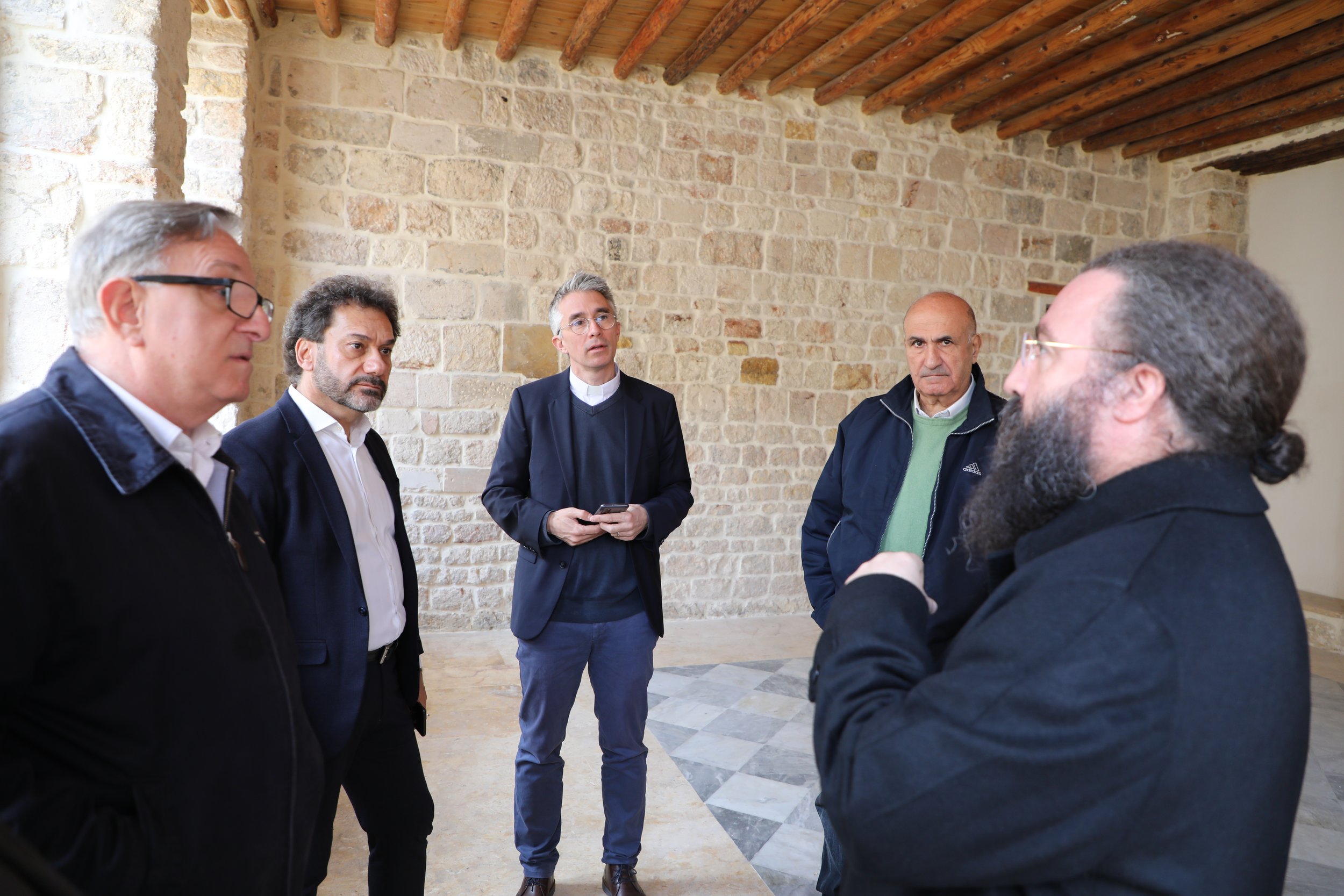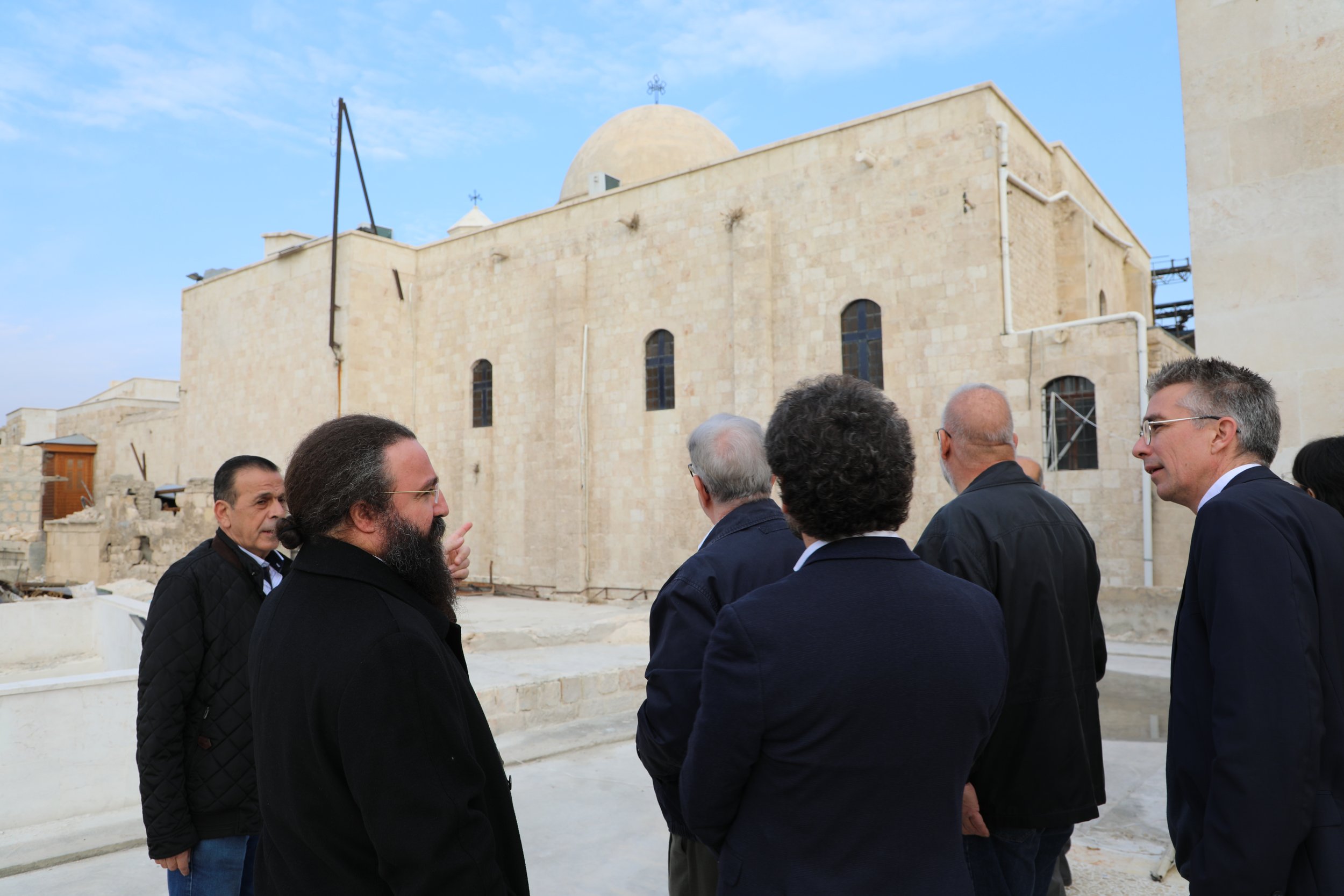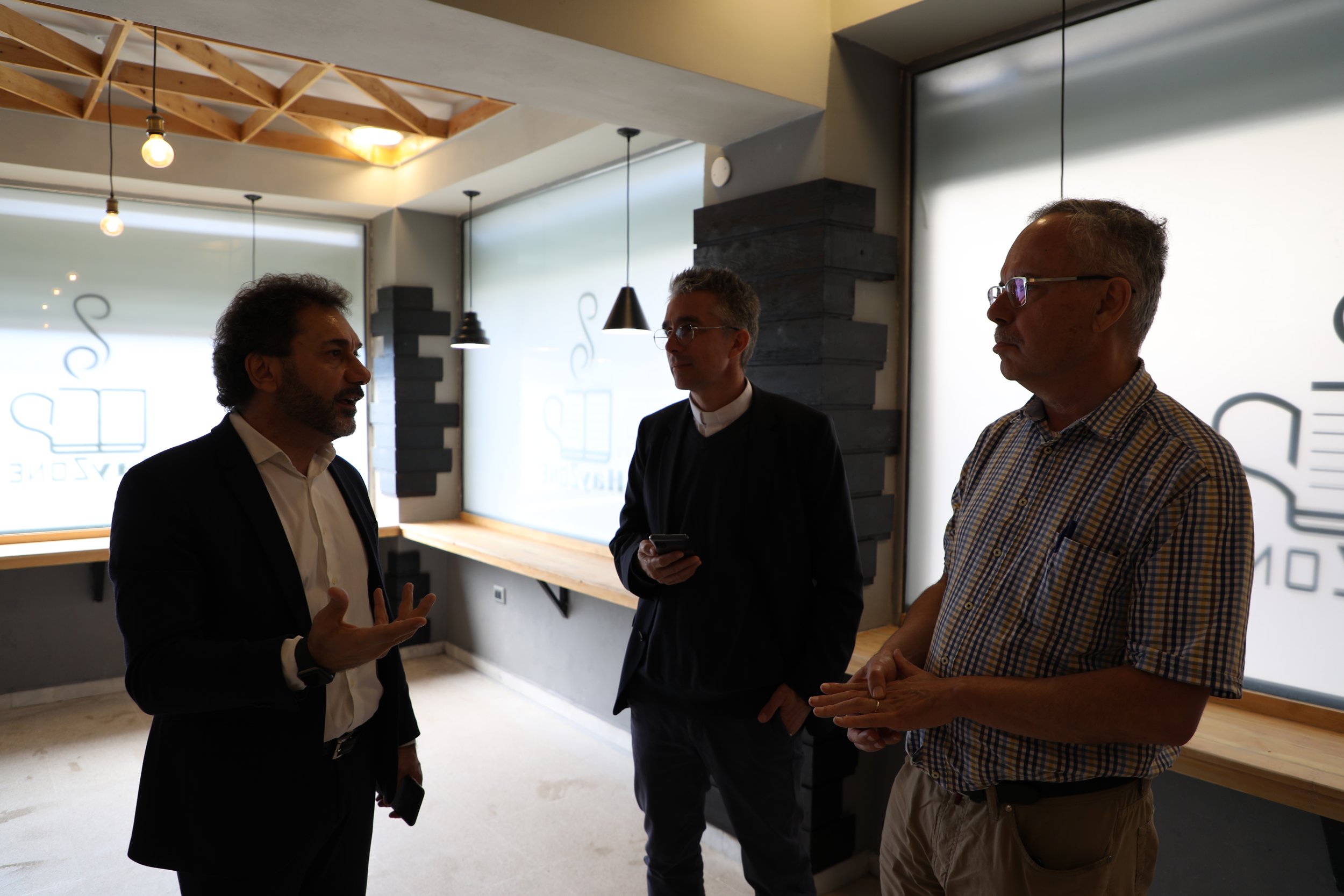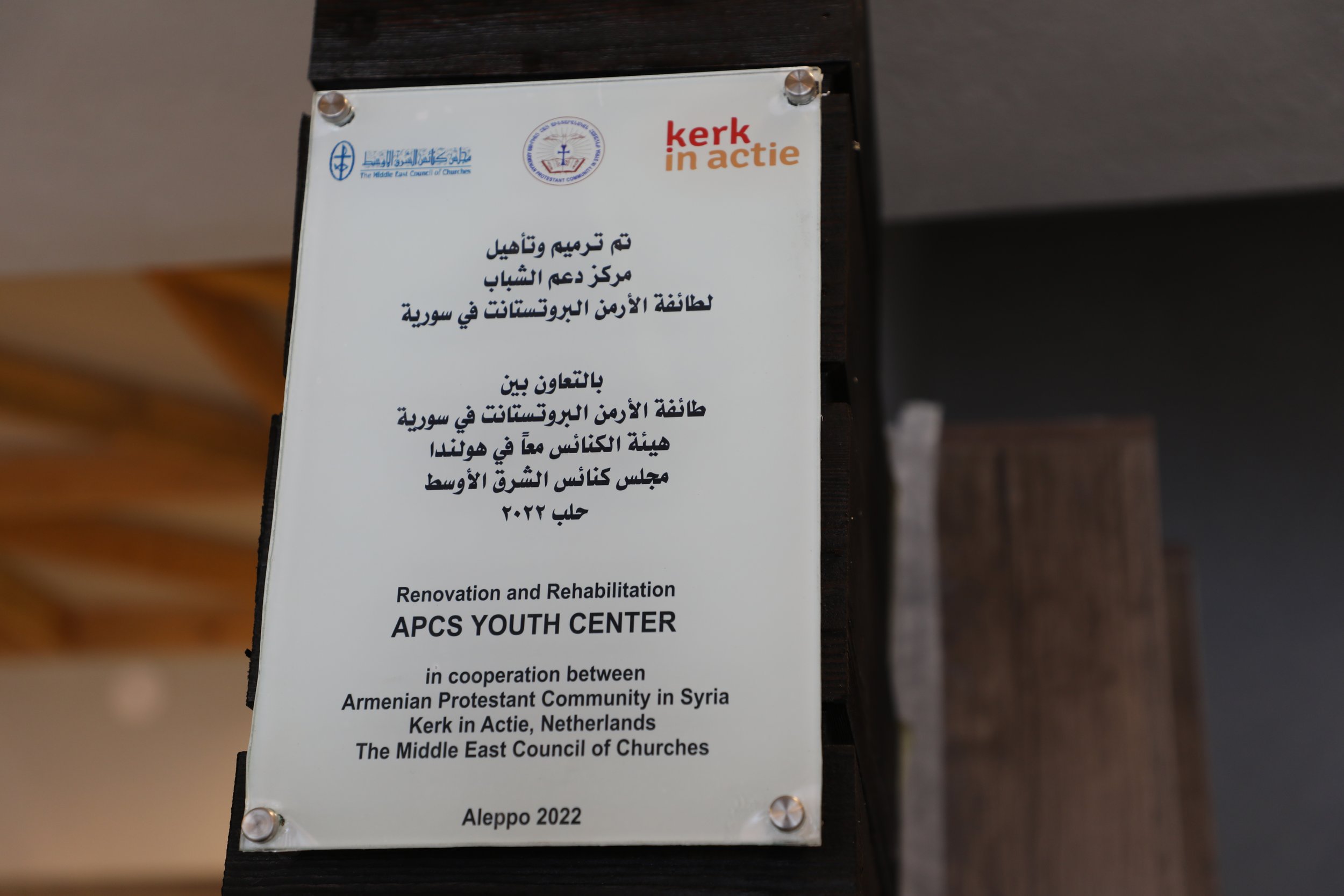The Middle East Council of Churches and “Kerk in Actie” organization in the Netherlands Visiting Aleppo
Here the Voice of Hope Rises Against War and Destruction
Report by Lama Halawi - Damascus office
Photos by Paula Antoun
Whoever visits Aleppo and walks in its streets can notice the wars’ repercussions in this city, and can even hear its groaning and pain. But amidst all the destruction, we can witness the determination of Aleppo’s people to restore their city and lives as it was before the war. In fact, they are seeking God’s help, believing in His power and support to rebuild what was destroyed by the Evil’s hands and war.
The Middle East Council of Churches and “Kerk in Actie” organization in the Netherlands supported the Syrians and Aleppo’s people within the “Restoration Fund for Rehabilitation of Faith-based Social Services & Religious Infrastructure Damaged During the Crisis in Syria”. A program which aims to restore what was damaged by the war so that hope can revive in the lives of people who are essential part of their Church.
A delegation from “Kerk in Actie” and the MECC Service and Relief – Diakonia Department held a field visit to the projects implemented as part of the program. The tour started with His Eminence Bishop Ephraim Maalouli, Metropolitan of the Greek Orthodox Archdiocese of Aleppo, Alexandretta and Dependencies, at the historical Greek Orthodox Archdiocese of Aleppo. His Eminence has briefly presented the constructed sections and the Archdiocese, as well as the damage it suffered from due to the war. Then, the delegation visited the Greek Orthodox Church of the Dormition of Our Lady, where the Church’s history was presented.
The Stones of the Living Church
The Arab Evangelical Church in Aleppo is one of the affected buildings due to the war and was completely destructed. The Middle East Council of Churches, in cooperation with “Kerk in Actie” organization in the Netherlands, contributed to the restoration of the Evangelical Center for Spiritual Activities affiliated to this Church, as part of the “Restoration Fund for Rehabilitation of Faith-based Social Services & Religious Infrastructure Damaged During the Crisis in Syria” program.
The Church was founded in Aleppo in 1853 following the service of Western missionaries who came to the Middle East. The spiritual Leader of the Arabic Evangelical Church in Aleppo Rev. Ibrahim Nasir described it as “salt dissolving in the world and a light prevailing on the earth.” He added “Who created Man from nothing is capable of creating a new society in the city of Aleppo witnessing to the great favor of God in Jesus Christ towards humanity.”
The Middle East Council of Churches contributed during its program last year in rebuilding the Church, which is still under construction. Noting that the Council's helped in equipping the Church's basement. The delegation visited the site and was briefed on the construction work as well as the sections in which work ended.
The second destination was to the Mar Elias Home for the Care of the Elderly, which was restored and renovated last year within the “Restoration Fund for Rehabilitation of Faith-based Social Services & Religious Infrastructure Damaged During the Crisis in Syria”. The delegation visited the center and were informed about its sections, history, and the damage it suffered from during the war.
The last destination in Aleppo’s visit was to the center for the youth support, which the Armenian Protestant Church is working to establish, with the help of the Middle East Council of Churches and “Kerk in Actie” organization. The center is a "study zone" and constitutes a meeting place for youth, and is also dedicated for reading and studying, in addition to establishing a sports club.
Rev. Dr. Haroutune Selimian, Head of the Armenian Protestant Community in Syria, accompanied the delegation during the visit and explained the implemented work and the goal of this project for youth in Aleppo.
Rev. Dr. Selimian said that the Church wanted to provide a safe place for students to help them study and read, so it can be a gathering place for youth from different religions and sects. Noting that different religions and sects have coexisted together in the region for hundreds of years.
He stressed that young people today need a safe place to meet, especially that they are facing many unethical issues. Therefore, when these youth centers are affiliated to the Church, youth will have a safe environment to meet and exchange ideas.
Strengthening the Christian Presence in Syria
The fourth day’s tour ended in the city of Maharda, Hama Governorate, at the St. Georges Monastery affiliated to the Greek Orthodox Patriarchate. In the Monastery, the restoration work was implemented at the Bishop’s section, and the section dedicated for various Churches’ camps.
The Monastery was founded in 1941 during the mandate of late Bishop Ignatius Hareke, Metropolitan of Hama. It constitutes a spiritual, religious, scientific and cultural beacon for the people of Maharda.
The delegation had a look on the restored sections where Father Boulos Haddad, Head of the Monastery, presented many explanations.
From their end, members of the delegation from “Kerk in Actie” organization stressed the importance of the “Restoration Fund for Rehabilitation of Faith-based Social Services & Religious Infrastructure Damaged During the Crisis in Syria” project, which would strengthen the Christian presence in Syria, as well as restore buildings and souls which were destroyed and harmed due to the war.
They praised the effort made by the Middle East Council of Churches, in cooperation with the Churches, in order to implement the project on the field. They also expressed their happiness to see the life returning to the Churches, schools, and centers for religious and educational activities after being destroyed by the war.


